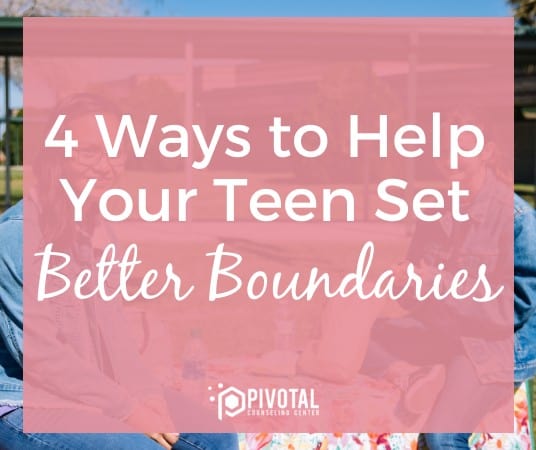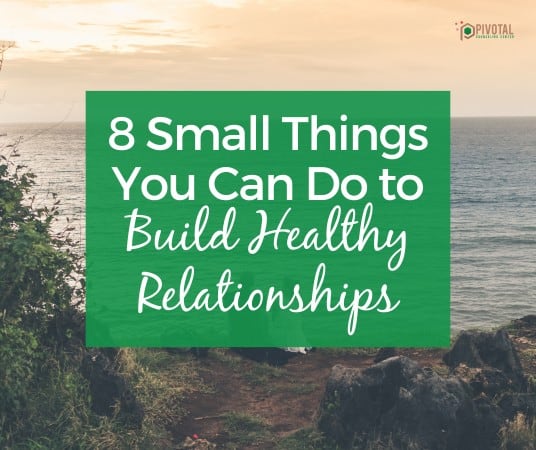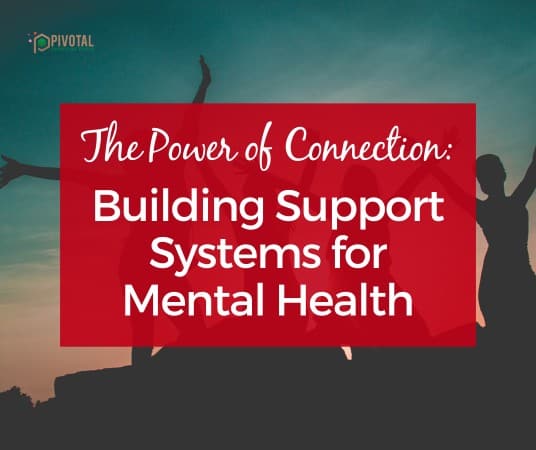
What do healthy boundaries look like?
A boundary is something that exists to help us set and communicate expectations and personal limits. Healthy boundaries look like “rules” you live by that help protect your time and energy, as well as separate your emotions and needs from the emotions and needs of others. A healthy boundary exists to help us allocate our resources (both physical and emotional) in a way that doesn’t force us to overextend ourselves or burn ourselves out. And remember, everyone’s boundaries will be different!
What does it mean to set healthy boundaries as a teen?
Teens may need some guidance and support when learning to set their own boundaries. Since it can be hard even for adults to set them, it’s natural that teens would struggle a bit, especially if they’ve never had to communicate a hard boundary before. But being a teenager is a very stressful, emotional time, so having the skill to set boundaries and protect their energy and time is hugely important for teens!
Some signs that your teenager could use better boundaries include:
- They are frequently involved in drama with friends and peers
- They struggle with making decisions
- They seem to just go along with what others are saying/doing without voicing their own thoughts
- They are constantly tired
- They complain about feeling guilty or anxious constantly
- They are frequently passive aggressive
- They seem terrified of rejection
- They are extreme with their trust–they either trust everyone without question or trust no on
While individually these signs may not indicate poor boundaries, if they are displaying one or more it is something to keep an eye on! While some teens may be tired because being a teen is tiring (with school, possibly work, clubs, social events, sports, and the physical exhaustion that goes with constantly growing!) if their fatigue seems to reach new or unusual levels, that could be a sign something more is going on.
Likewise, friend drama isn’t always a sign of bad boundaries–teens are in a very emotional part of life, and it’s perfectly normal for them to fight with friends every now and then. However, if it seems they are never having fun or peaceful times with friends, or if they are always the victim in some sort of situation, it’s likely their social and emotional boundaries aren’t strong. They may be finding themselves in situations they wouldn’t put themselves in, simply because they don’t want to upset their friends by saying no.
That’s why it’s important to help teach teens about healthy boundaries. Here are 4 ways you can help your teen learn to set better boundaries:
Lead by example:
If your teen sees you intentionally setting thoughtful boundaries, they will naturally learn that that is a part of successful adult communication. It will be a skill they can observe and learn from! Use moments you set or communicate or reinforce your boundaries as an opportunity to open a conversation about them with your teen.
Respect the boundaries they set with you:
Teens won’t just be setting boundaries with their peers. Healthy boundaries encompass all relationships, so if you want to encourage them to have healthy boundaries in your life, that means respecting the ones they set with you! That means not going through their password protected devices, or knocking when their door is closed. This is especially important as our relationships with our parents help set the tone for our other relationships. If they learn from their relationship with you that setting them is healthy and encouraged and respected, there will be less fear that comes up when setting boundaries with others!
Suggest boundaries when you see them getting overwhelmed:
This doesn’t mean you get to just make the decisions for them, but sometimes teens don’t know when it’s appropriate to set a new boundary. They don’t have the life or relationship experience that a parent has, so they might not recognize when someone is taking advantage of their poor boundaries. In these cases, it’s entirely appropriate to gently suggest they set limits to protect their energy and emotional wellbeing.
Give them some language to use:
Setting boundaries is hard simply because many of us just don’t know how. How do you bring them up? How do you communicate them thoughtfully? When talking about boundaries with your teen, give some examples of how you’ve communicated your own. And, if they want to, give them the opportunity to practice on you! They can work out what they’re going to say with you so they have some practice before applying it elsewhere.
Pivotal Counseling Center has therapists who work with individuals and have many different specialties. We have locations in Woodstock, Illinois, and Lake in the Hills, Illinois. If you are in need of someone to help, please consider giving us a call at (815) 345-3400.
Pivotal Counseling Center is now accepting Medicaid including Blue Cross Community Medicaid, Meridian Medicaid, and Molina Medicaid for outpatient counseling.









